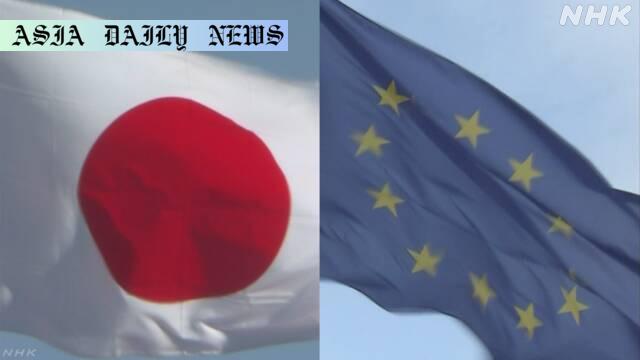Gray-zone Situations: Japanese and EU seminar fosters legal knowledge and strategies in Southeast Asia on managing maritime disputes.
Key Point 1: Japan and EU held a seminar on gray-zone maritime situations in Bangkok, Thailand, for five Southeast Asian nations.
Key Point 2: The discussions focused on reinforcing international law and legal measures in response to maritime breaches.
Key Point 3: The EU aims to strengthen its participation and promote rule-based systems in the region amidst challenges from China’s actions.

Collaborative Seminar Between Japan and EU
In a joint effort to tackle increasing tensions and challenges in the maritime sphere, Japan and the European Union (EU) recently co-hosted their inaugural seminar addressing the complex issue of ‘gray-zone situations’ at sea. The event, held in Bangkok, marked a key initiative aimed at fostering better cooperation and knowledge-sharing among Southeast Asian nations, specifically concerning maritime territorial disputes. Representatives from countries like the Philippines and Vietnam attended alongside Japanese and EU experts, highlighting the seminar’s inclusivity and focus on regional stability. The growing global maritime challenges necessitate proactive solutions, and Japan, backed by EU expertise, is taking a significant step toward peace and cooperation.
Legal Foundations Over Military Conflict
The seminar stood out for emphasizing the use of international law and coast guard forces over military forces, addressing contentious situations like unauthorized ship entry into territorial waters. Lectures from EU legal advisors and members of the Japan Coast Guard Academy demonstrated how legal measures not only offer solutions but also prevent unnecessary escalations of conflict. By focusing on governance rather than indiscriminate retaliation, this dialogue upheld respect for international rules. Japan’s territorial waters, which have repeatedly been the focus of intrusions by Chinese government vessels, served as a case study, enriching the discussion with real-world insights.
The Case for Maritime Stability in Southeast Asia
The Southeast Asian region is fraught with issues like overlapping territorial claims, illegal fishing, and sabotage of undersea cables—a topic explored during the seminar. With events like these, Japan and the EU aim to establish a rule-based maritime framework in the region, countering actions that jeopardize peace and stability. This approach could also curb China’s growing assertiveness, ensuring fair resource sharing and preventing unwarranted conflicts. Enhanced knowledge among coast guard officials is expected to bolster these objectives, offering long-term solutions while strengthening regional unity.
Strategic Implications of Europe’s Involvement
Europe is showcasing its expanding interest in Southeast Asia, with this seminar as a testament to its ambitions to become a key player in global maritime governance. Working alongside Japan, the EU seeks to endorse transparency, fairness, and compliance with the United Nations’ conventions on the law of the sea. This collaboration reflects an international effort to create checks and balances in a region with strategic significance, resource wealth, and the backdrop of China’s growing maritime influence. The partnership not only strengthens ties between Europe and Asia but also encourages Southeast Asian nations to embrace international laws that alleviate potential gray-zone confrontations.
Commentary
Importance of Global Collaboration
The joint seminar conducted by Japan and the EU highlights the indispensability of international collaboration in mitigating maritime challenges. At a time when disputes over territorial waters and resource control are escalating, initiatives like these offer pragmatic and legally sound solutions for addressing disagreements. By involving regional players like the Philippines and Vietnam, this dialogue ensures that every stakeholder gets a seat at the table, promoting inclusivity and shared accountability.
Legal Acumen as a Conflict-Prevention Mechanism
One of the seminar’s core messages—that law prevails over confrontation—sets a powerful precedent for addressing gray-zone conflicts. The focus on empowering coast guards rather than escalating military responses exemplifies a level-headed approach to conflict resolution. This approach not only reduces the risk of unnecessary military showdown but also signals a commitment to fostering goodwill among regional players. It’s a move rooted in the belief that diplomacy and legal rigor can triumph over hostility and aggression.
Europe’s Growing Interest in Asia
The EU’s participation sheds light on its ambitions to forge stronger ties with Asia. At a time when China’s assertive stance in the South China Sea raises alarms, Europe’s involvement in fostering stable regional governance is both timely and strategic. Beyond maritime security, such efforts could lead to greater international trade confidence, open channels for dialogue, and encourage other global players to constructively engage with Southeast Asia, which is increasingly being viewed as a global economic and geopolitical fulcrum.


